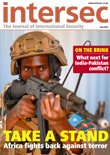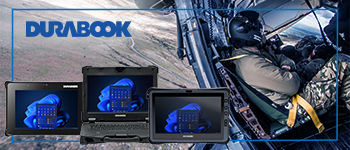High profile screening – Part 2
In response to Ian Hutcheson’s comments in the July/August issue, Colin Meads argues that airline passenger profiling and opt-in membership schemes are inappropriate and unworkable
The article “High Profile Screening” in intersec’s July/August issue, and Simon Calder’s subsequent article in the The Independent on 3 September, on air passenger profiling opens an interesting debate. Is Ian Hutcheson suggesting that certain passengers who join the “membership scheme” are exempt from the current screening processes which require both personal belongings and themselves to be subjected to basic electronic screening, thereby circumnavigating the current processes in return for a faster, unhindered access to a restricted and vulnerable area? Or will additional profiling of passengers be added on top of the current processes?
Currently all passengers are required to be subjected to screening to ascertain if they are carrying anything which is prohibited in the secure area or onboard an aircraft. This relates not only to explosives but also weapons or articles that can be used to facilitate a person hi-jacking an aircraft, as in 9/11 when bombs were not used, but threats and weapons were used to gain access to the cockpit.
Screening is not only there to protect the public from terrorist threats but also criminal acts and mentally unstable passengers who may present a threat to safety and security while in the air. Disruptive and drunken passengers are as much a threat as a terrorist, especially when, as in the past, they have tried to open doors or attack passengers while at 30,000 ft.
A study I authored while a senior police officer at Heathrow airport identified that more than 100,000 prohibited articles were found per annum and seized by airport security staff when conducting the normal routine screening of passengers. Over a third of these were actually offensive weapons and constituted a criminal offence in their own right by being in possession in a public place, yet not one of these passengers were arrested or prosecuted. The articles were seized and the passenger allowed to go on their way and at a later stage the police were contacted and they collected those items which were illegal.
As a result of my report, submitted to the government of the day and the shadow Home Secretary, The Rt Hon Jack Straw, a more robust policy was introduced whereby passengers in possession of such articles as sword sticks, flick knives, knuckle dusters and other offensive weapons were arrested under Section 1 Prevention of Crimes Act 1953 and other legislation governing aviation security and public safety. What was not known was how many articles were not discovered during the screening process, and this covers only Heathrow Airport. It must be remembered that, at that time, BAA was responsible for the safety and security of passengers passing through six other UK airports. Additionally, there were the independents such as Manchester, Birmingham and regional airports. The issue was of national interest and had been notified to the Department for Transport through reports from a number of sources. Eurostar had a similar issue, and I worked closely with the BTP on addressing this issue. A conservative estimate was that over one million prohibited articles were found and seized each year.
The current processes require all passengers to be subjected to the minimum screening processes of AMD and carry-on luggage X-ray screening to identify explosives, firearms and potential weapons or prohibited articles. The DfT requires that a certain number of passengers are subjected to a full body search and this is achieved by two methods. Those who alarm as they walk through the AMD are subjected to a full body search, and selected passengers who do not alarm are included to make up the numbers. It varies depending upon the current security status as to how many passengers must be subjected to a full body search. This process, being random, adds an element of surprise and unpredictability to the process. Baggage of course is pulled if there are articles which present concern.
In the past the additional passengers identified to be searched – other than those who alarm – was ad hoc and without any real basis for selection. Airports often failed to select sufficient passengers to meet the target requirement of the regulator, and it was one of the areas in which they consistently failed audits. It was an additional burden which the airport operators did not like as it added to the demand, required additional staff in order to execute it properly, and added to the delay and queues. It was often at busy times that the standards fell, and the prerequisite numbers were not met.
There is a strong argument that these additional passengers should be more scientifically chosen by means of profiling and pre-identification to select better target who might present possible threats, in addition to those who are identified via electronic screening. In his recent call for profiling, Ian Hutcheson makes reference to the US government which already identifies certain sections of the population as presenting less of a threat, such as young children, people over 65 and the military. While this has some merit, it begs the question as to why a person aged 64 presents more of a threat than a person aged 65. Sixty-five is a random age selected as the age we draw old age pension and accepted as a retirement age. At a time when people retire early from employment, but now draw their government pension at 66, which is likely to increase, on what scientific basis is 65 chosen?
Having said that, anyone who has been operational in law enforcement or the intelligent services will automatically profile people depending on the environment and circumstances they are in. It was a common tactic to use young children as suicide bombers in Israel, and more recently in Afghanistan – children and babies are also used as mules to convey drugs and explosives in the knowledge that they attract less attention. Being so young of course meant that they were not in a position to refuse or even bring this issue to the attention of the authorities.
What additional personal information would a person submit to join the “membership club”? Is there a limit to what can and should be required? The obvious are of course date and place of birth, employment and address. Currently all airport employees are required to supply this information, along with personal references, and be subjected to enhanced vetting and CRB checks to ensure that they are able to hold an airside pass. Despite all of these checks, which are costly and time consuming, we have had repeated incidents in recent years of aviation workers being involved with terrorist offences, including a BA employee. Many airport workers have also been involved in organised crime at airports.
The response to 9/11 was dictated by the UK Dft and the US DHS (TSA), especially in relation to segregation of passengers and the introduction of secondary gate search of initially all flights, but eventually just US-bound flights. Airports objected to or resisted these measures at first as they required additional resourcing, but eventually they had to concede to these requirements as a directive of various governments. It would be wrong to suggest that airports led the response for the UK’s leading airports; rather, they implemented the directions of central governments.
After 9/11, BAA insisted that all police officers must be subjected to screening as a normal passenger when entering the secure zone – even Special Branch and officers carrying firearms, CID and Regional Crimes Squads acting under cover following suspects. This extended to other government security, intelligence and law enforcement agencies. This resulted in heated exchanges and arguments, but eventually the police had to submit themselves to screening as a normal member of the public. How on earth can they now argue that “joining a membership scheme” represents a higher level of security than that demonstrated by the UK’s own intelligence agencies?
In the past we have had managing director of a multinational company take a walking stick with a concealed sword blade through security, along with a High Court judge carrying a flick knife which he claimed he used for fishing in France. Most of those who were caught with offensive weapons were from a normal background that, on the face of any profiling, would be accepted as presenting no threat whatsoever. If the new proposals were to be introduced then these people would go undetected through security and these weapons would be allowed on the aircraft.
The Glasgow airport terrorist attack in 2007 highlights the issue surrounding profiling. The main protagonists were medical doctors practising in an NHS hospital. One of the suspects’ fathers was also a medical doctor, and checks on their background would have revealed them as being a pillar of society in a highly-regarded profession. This highlights that no matter what your family background, profession or educational qualifications, radicalisation and religious zeal can turn anyone into potential terrorists without any indication to those closely associated with them.
It is also highly dangerous to exclude certain sections of society from basic security measures. The very persons identified in Ian Hutcheson’s interview work for organisations who themselves apply similar measures, and they would expect everyone to be subjected to these measures. It is therefore incomprehensible that they would expect to be excluded from similar security measures in what is the most high-risk area of public life. I cannot imagine for one minute that this policy would have been instigated at the London Olympics last year, whereby certain individuals were excluded from screening because of who they were. The athletes and all the support staff and organisers were subjected to both vetting and screening.
This profiling is a thorny subject, not least because of the claims of racism and discrimination against certain sections of society. It is inconceivable that airports are suggesting that passenger profiling should be introduced when only last year a Mr David Jones, author of Fireman Sam, asked the question when travelling through Gatwick Airport “What would happen to me if I wore my scarf around my face like her”, referring got a Muslim lady who was dressed in a full Burqa – banned in many countries in public for the very issue of security. As a result of this he was detained by Gatwick security, taken back to landside and had his passport seized and returned over an hour later upon the condition he made an apology for such a remark because it offended a female Muslim security guard. If that is the case then this profiling of passengers will cause much more of a conflict among the minority section of the community, including the guards who may even refuse to implement it because of their beliefs.
Colin Meads is a former Chief Inspector with the Metropolitan Police and served as a senior security manager for BAA (now LHR Airports) between 2001 and 2004.









